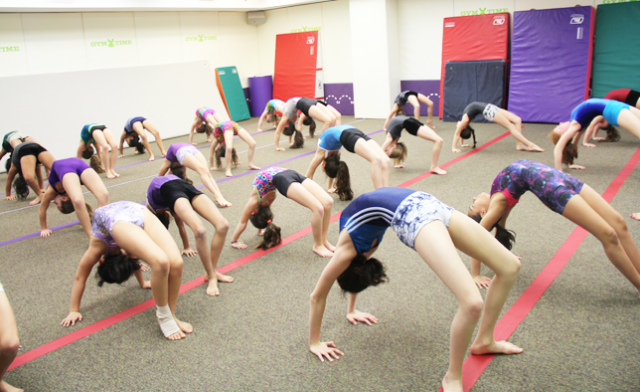The Importance of Commitment

SHARED By: Coach Deana
“Education is a shared commitment between dedicated teachers, motivated students and enthusiastic parents with high expectations.” – Bob Beauprez
Commitment is an important part of any long-term endeavor. It is certainly inherent in any well- rounded success. Gymnastics is an incredibly exciting and rewarding, but also challenging sport.It takes a lot of time commitment, as well as dedication and spirit from participants – most of which are young students.Often gymnastics tags along with these young humans through their formative years. If appropriately incorporated, gymnastics can greatly enrich one’s life experience. Being an amalgamation of sport and art, gymnastics is a unique opportunity to develop skills, express and flourish through movement.
Again, all of these benefits require a commitment to the principles, rules and demands of gymnastics. How can we learn effective ways to encourage commitment without becoming overly forceful? It can, at times, be difficult to balance fostering enthusiasm for something with nudging toward commitment. It is always easier when a person naturally wants to do something. But, as with any long-term relationship, there comes a time when we must commit to something despite fleeting feelings of doubt or boredom or frustration. Usually, we see the benefits of sticking to something and are glad we did, in retrospect. But, we have to evaluate our progress and encourage our gymnasts to be the best they can be . . . in everything. Sometimes quitting is the right choice, but it can always be an informed one. Gymnastics is tough, but it is also a privilege. It requires very precise movement patterns and manipulation of our bodies. Not everyone can do it. Coaches know this. We must be selective to ensure that a potential gymnast has the basic motor capabilities to safely pursue our sport.
There is a short article that lends some helpful advice for evaluating commitment and determining when it is okay to quit. The article elaborates on the following things to consider when the going gets tough and a natural reaction is to quit:
- Don’t give in too quickly
- Hear your child out
- Look for a solution
- How to decide whether to quit
- Worry if there’s a quitting pattern
A discussion about commitment is often inevitable when training gymnasts. But, ultimately, commitment adds value and aids success. It is a good lesson learned. With support, our young gymnasts can develop an inclination to be more committed to things they pursue and use this skill to face challenges they encounter.









